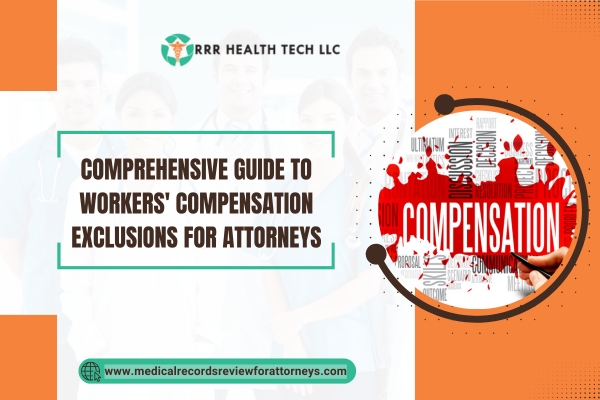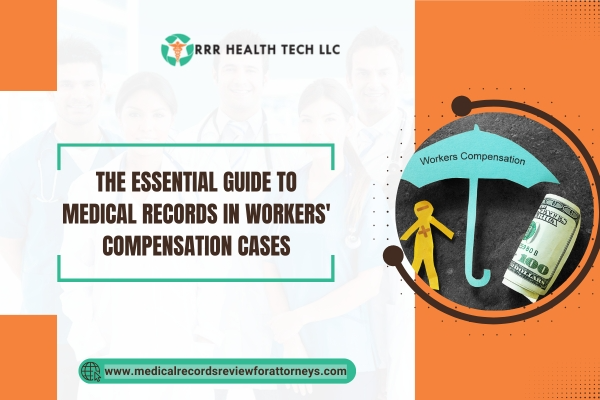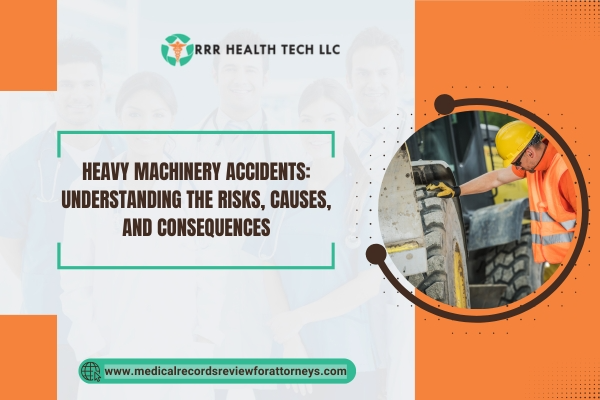
Introduction
As it is widely known, workers’ compensation can be described as providing assistance to employees who sustain injuries at work. However, such coverage has its drawbacks as not all injuries and medical issues are likely to be compensated. For lawyers managing such complexities, it is essential to know what kinds of injuries are likely to be left out. This article explains the types of injuries or their aspects that disqualify a worker from receiving workers’ compensation benefits, the legal ramifications of the provision, and the importance of reviewing medical records in relation to claims handling.
1. Overview of Workers’ Compensation
Definition and Purpose
Workers’ compensation is known to be a program which is instituted by law and allows employees who suffer from injuries or become sick due to work related circumstances, to receive compensation from their work place. The purpose of this system is to make sure that certain employees get certain medical services and their salaries are affected by the time without any court case.
Types of Coverage
Typically, workers’ compensation covers:
• Medical treatment connected with the injury
• Temporary disability – loss of income
• Permanent disability – long-lasting loss of function
• Vocational rehabilitation services
2. Common Injuries Covered by Workers’ Compensation
Common injuries that are usually covered include:
• Slip and fall accidents
• Repetitive strain injury
• Machinery injuries
• Chemical burns or exposure to chemicals
3. Injuries Typically Not Covered
Among the many injuries which are covered by workers’ compensation, some are frequently taken out of insurance coverage. In cases where these types of restrictions apply, it is necessary for attorneys to know them beforehand when working with clients on such instances.
Pre-existing Conditions
There are generally available no compensation for the injuries caused by the pre-existing condition. For instance, if a person has pattern backache and gets his backache because of different reasons at work then the claim can easily be refused.
Injuries from Intoxication
Such type of employees rely on drugs or alcohol and get injured whilst doing activities like that of employees, workers’ compensation is not applicable in this case. Generally, employers are clearly directing that substance abuse is not allowed, and violation of such rules will cause any claims to be unfavoured.
Self-Inflicted Injuries
Self-inflicted injuries are included in the exclusion clause. As always, there are exceptions, and any injury sustained as a result of self-inflicted actions at work will not be covered. An example is injuries taken out during self-injury acts and those perpetrated as acts of revenge.
Injuries Occurring During Commuting
Injuries sustained during the commute to or from work are typically not covered by workers’ compensation. This exclusion can lead to confusion, as some states have specific exceptions for work-related travel.
Mental Health Issues
While some mental health conditions can be covered under workers’ compensation, many states impose strict criteria. Conditions such as stress or anxiety must be directly linked to a specific work-related event to qualify.
Injuries from Violating Company Policy
If an employee is injured while violating company policies, such as not wearing safety equipment, they may find their claim denied. Employers have a duty to enforce safety protocols, and violations can jeopardize coverage.
4. Legal Implications for Attorneys
Understanding Exclusions
Lawyers have to be familiar with the workers’ compensation exclusions in order to provide proper legal counselling to clients. Settlement of case with adequate preparation entails effortless exploration of law revision and case law of the state.
Strategies for Case Preparation
When preparing a case, attorneys should:
• Carry out complete burden of proving within medical records
• Reconstruct the events surrounding the trauma
• Seek the opinion of medical practitioners if the need arise
• Manage the possible counterclaims of the employer
5. The Role of Medical Records Review
Importance in Workers’ Compensation Claims
Medical records play a pivotal role in workers’ compensation claims. Accurate and thorough documentation can substantiate the injury and its relation to work.
How We Assist Attorneys
We specialize in medical records review for attorneys. Our services include:
• Medical records and other documents analysis
• Records with errors and missing information analysis
• Trial preparation evidence provision aspect
6. Case Studies
Case Study 1: Slip and Fall Incident
Overview: A worker who was on duty in a warehouse slipped and got a waterlogged floor and broke the leg bone.
Challenges: The employer opposed the claim, contending the worker was not in compliance with the security measures
Solutions: Upon satisfactory arrangement cool medicine record analysis, we proved that an employee worked with all the safety precautions and there was no adequate warning concerning wet floor.
Compensation: The claim was recommended for approval and the claim was passed to insure lost wages and medical costs.
Case Study 2: Repetitive Strain Injury
Overview: Working on a continuous basis on computers, this office worker experienced carpal tunnel syndrome as an affliction.
Challenges: Claim was turned down by the employer on grounds that the said condition was not due to work, but was pre-existing.
Solutions: Our team investigated that employee’s medical history as well as occupational setting, showing how the job activities resulted in the trauma.
Compensation: The case was settled in a manner which was very much in favour of the employee as necessary medical treatment was provided along with loss of earning compensations.
7. Conclusion
Understanding the nuances of injuries not covered by workers’ compensation is essential for attorneys representing clients in these cases. By leveraging medical records review, legal professionals can build stronger cases and navigate the complexities of the claims process more effectively.


